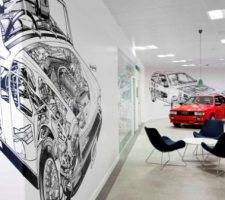March 2, 2015
Lack of sleep of over a third of workers could be costly to the US economy
 Forty-two percent of U.S. adults are getting less than seven hours of sleep on a typical night, the minimum number of hours recommended by the National Sleep Foundation for those aged 18 and older. Gallup research reveals not getting enough sleep is not only linked to lower well-being for individuals, but it is also costly to the U.S. economy. Employees may not have enough time to sleep because of working long hours, family obligations, insomnia or having poor well-being in other areas. For example, poor physical well-being, social isolation or financial strain could adversely affect quantity of sleep. According to Gallup, employers should explore interventions to promote the value of sleep and its link to employees’ well-being, as this relates to engagement, healthcare costs and productivity. When possible, they may want to allow employees to work flexible hours, which could make it easier for workers to balance work and family demands with getting enough sleep.
Forty-two percent of U.S. adults are getting less than seven hours of sleep on a typical night, the minimum number of hours recommended by the National Sleep Foundation for those aged 18 and older. Gallup research reveals not getting enough sleep is not only linked to lower well-being for individuals, but it is also costly to the U.S. economy. Employees may not have enough time to sleep because of working long hours, family obligations, insomnia or having poor well-being in other areas. For example, poor physical well-being, social isolation or financial strain could adversely affect quantity of sleep. According to Gallup, employers should explore interventions to promote the value of sleep and its link to employees’ well-being, as this relates to engagement, healthcare costs and productivity. When possible, they may want to allow employees to work flexible hours, which could make it easier for workers to balance work and family demands with getting enough sleep.









 Just a few days ago,
Just a few days ago,  Given the track record of people when it comes to making predictions about the future, it’s easy to grow cynical, especially when it involves a profession as subject to the vagaries of technological and cultural change as facilities management. But while we should be wary of more fanciful and long term thinking, any natural scepticism shouldn’t blind us to those predictions that we know will largely come true, especially those based on what we know is happening already. For example, recent research carried out by Cass Business School and Henley Business School and presented in the book
Given the track record of people when it comes to making predictions about the future, it’s easy to grow cynical, especially when it involves a profession as subject to the vagaries of technological and cultural change as facilities management. But while we should be wary of more fanciful and long term thinking, any natural scepticism shouldn’t blind us to those predictions that we know will largely come true, especially those based on what we know is happening already. For example, recent research carried out by Cass Business School and Henley Business School and presented in the book 










February 11, 2015
This isn’t a golden era for small business; it’s more interesting than that
by Mark Eltringham • Comment, Flexible working, Public Sector, Technology
(more…)